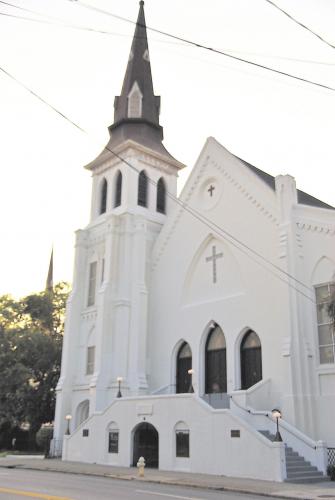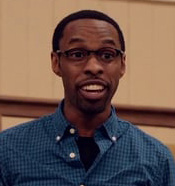
I woke up this morning to nine people being killed: Cynthia Hurd, Susie Jackson, Ethel Lance, Reverend DePayne Middleton-Doctor, the honorable reverend Clementa Pinckney, Tywanza Sanders, reverend Daniel Simmons Sr, reverend Sharonda Singleton, and Myra Thompson.
I am dragged down and hurt, and I can barely feel the full pain that reading those names weighs on my body.
We need to mourn.
‘I really wish black people could mourn – hold each other, cry, feel, go numb, dance – however we need to mourn without some of y’all IMMEDIATELY turning our pain into an object lesson for your racist white friends.’ – Irna Landrum
I need to mourn.
Today I did not talk to white friends and colleagues about Charleston; I didn’t want to do that work today. Instead, I focused on the tasks at hand.
Then, this afternoon, I called a young black activist in Philadelphia. We talked business but I could hear the wear in his voice, and yet there was a distance between us. A quiet voice deep in my heart pleaded: ‘Just ask him where he is and go. You need it too.’ I hurt now, just as when I hung up and got back to work.
‘He who fights too long against dragons becomes a dragon himself; and if thou gaze too long into the abyss, the abyss will gaze into thee.’ – Nietzsche
I want a radical shift.
For too long, anti-oppression training has gotten stuck in teaching people rules – the rules of political correctness, of saying the right thing, of who is oppressed and oppressor.
We have gone this way so long that we are becoming the imperialists. We are setting the rules and defining how people can and should behave. That is not freedom; that is oppression.
What if we shift? What if we make space to feel our pain, our disconnection, our longing for something more than the world we live in? What if we reclaim the dream of liberation?
Liberation through choice, self-discovery, open-hearts, and just plain-old trying things out.
Liberation where we can let go of white-supremacy and turn our focus inward toward our hearts and our communities – all of what is right in front of us.
As a trainer, I want people to live. I want people to grow. I want participants to leave and make radical social change happen, not just follow ‘the rules’.
I want them to find their neighbours now, so people have the experience of not being alone or not always being the other. Of reaching out for help and being held. Of having access to the range of their emotions and power.
I believe in powerful people. And I want to become one alongside you.


